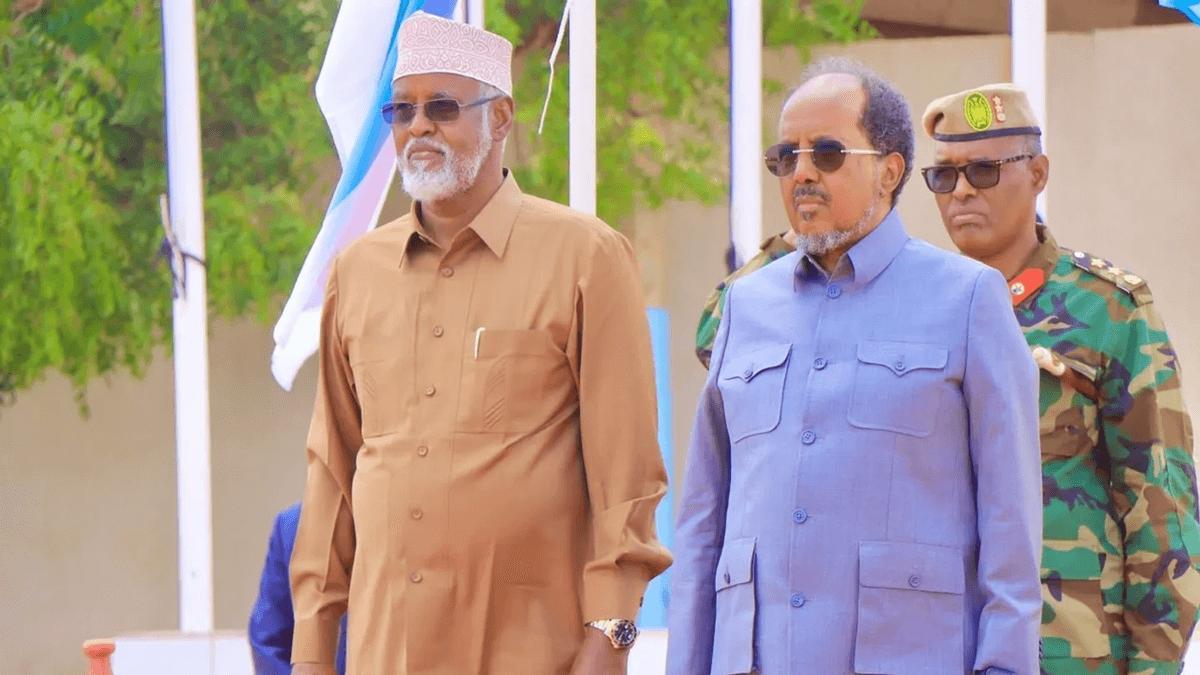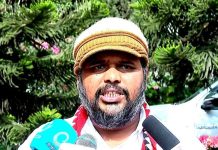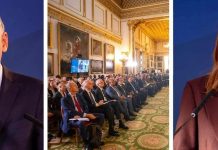Africa-Press – Ethiopia. November 1, 2025 3 minutes read Addis Abeba – Somalia’s fragile federal project is undergoing its most severe stress test since its establishment in 2012. The escalating conflict between the Federal Government of Somalia (FGS) and powerful Federal Member States (FMSs), most notably Puntland and Jubaland, has culminated in a political reckoning that Mogadishu can no longer manage alone. President Hassan Sheikh Mohamud’s ambitious drive to centralize authority has collided with the entrenched realities of Somalia’s decentralized political landscape, forcing a retreat to foreign-mediated dialogue. This is not a tactical pivot but rather a public acknowledgment that unilateral governance has failed across the board.
The FGS’s reliance on external mediation is the direct consequence of a failed executive-centric strategy that has collapsed across the three core pillars of governance: federalism, security, and electoral reform.
The immediate trigger of the crisis was the rushed passage of constitutional amendments in March 2024. Widely perceived as a move to concentrate power in Villa Somalia, the amendments were enacted without national consensus and swiftly rejected by Puntland and Jubaland. Puntland responded with an unprecedented declaration of administrative independence, a seismic moment that fractured the foundation of Somalia’s federal system.
The crisis deepened when Mogadishu formalized the SSC-Khatumo administration in the disputed Sool region—territory also claimed by Puntland. Instead of stabilizing the area, this decision was viewed as a deliberate provocation, further alienating Puntland and escalating hostilities.
Hassan Sheikh’s centralized agenda also undermined the counterinsurgency campaign. The much-touted “Total War” against Al-Shabaab, launched in 2022, relied on fragile clan-militia alliances and was quickly derailed by political rifts. By mid-2024 the offensive had stalled, with Al-Shabaab regaining ground and launching counterattacks.
The group’s resilience was underscored by an IED/roadside bomb attack near Mogadishu that targeted the presidential convoy, illustrating Al-Shabaab’s ability to strike near the seat of government. Meanwhile, the dispute with Jubaland diverted scarce military resources away from counterinsurgency efforts, weakening coordination just as Somalia faced the drawdown of the African Union Transition Mission in Somalia (ATMIS).
The President’s attempt to push a “One Person, One Vote” electoral model unilaterally further alienated FMSs and opposition groups, who warned the system was unworkable given security and logistical constraints. Critics argued the move was designed to consolidate executive dominance ahead of elections rather than strengthen democracy.
Compounding this was a flood of corruption allegations, including the illegal sale of public land and state assets. These long-standing governance failures have significantly eroded public trust and fueled popular resentment, reinforcing narratives of a predatory elite.
With domestic mechanisms exhausted, the epicenter of Somali politics shifted abroad. Quiet diplomacy by the United Arab Emirates (UAE) and other regional players pushed Mogadishu toward mediation. This effort culminated in Kenya taking on a formal mediation role, a development that underscores Nairobi’s growing regional influence and grants it substantial leverage over the political timetable and the conditions for compromise.
Puntland and Jubaland’s coordinated stance proved decisive. Their refusal to be divided by Mogadishu’s traditional patronage tactics transformed the negotiations into a collective counterweight, forcing the federal government to concede ground and enter talks from a weakened position.
The mediated talks represent the beginning of a fundamental reset. For Somalia’s federation to survive, Mogadishu must agree to a suspension of unilateral processes—including freezing contested constitutional chapters and the recognition of Khatumo—until a genuinely inclusive national dialogue occurs. Equally essential are independent anti-corruption mechanisms to investigate high-level graft and land alienation and a rebalanced federal compact that anchors power-sharing and resource allocation in consensus rather than imposition.
This mediated dialogue is a sovereign reckoning. It signals the end of governance by unilateral decree. For President Hassan Sheikh Mohamud, the choice is stark: accept a genuine recalibration of federal power and embrace consensus politics, or risk presiding over the irreversible disintegration of the Somali state. Only Somali leaders themselves can decide whether this moment becomes a foundation for renewal or the prelude to deeper fragmentation. AS
For More News And Analysis About Ethiopia Follow Africa-Press






